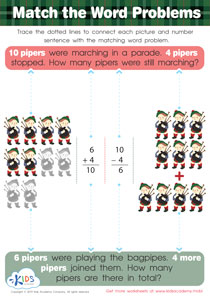Problem-solving abilities Normal Addition Worksheets for Ages 4-9
4 filtered results
-
From - To
Unlock your child’s potential with our Problem-Solving Abilities Normal Addition Worksheets for Ages 4-9. Specially crafted to build foundational math skills, these engaging sheets enhance critical thinking and problem-solving abilities through fun and interactive addition exercises. Each worksheet is designed to challenge young minds while making learning enjoyable. Ideal for home or classroom use, our worksheets support consistent practice and skill reinforcement. Help your child gain confidence in math, stay ahead, and develop a love for learning, all while having fun! Perfect for parents and teachers seeking quality educational resources.
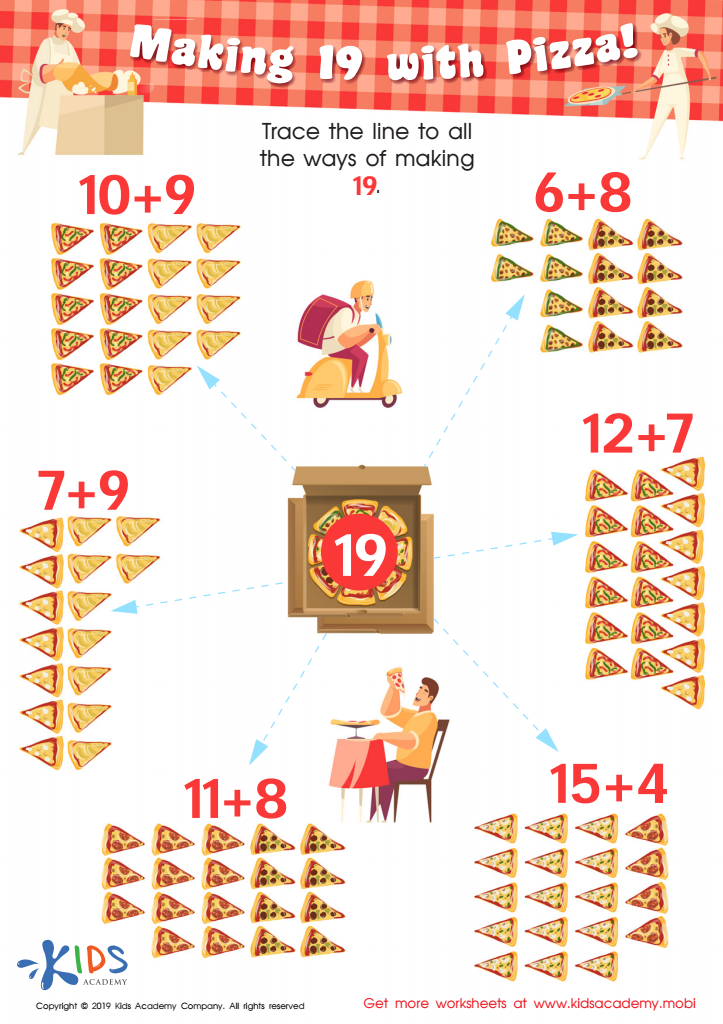

Making 19 with Pizza! Worksheet
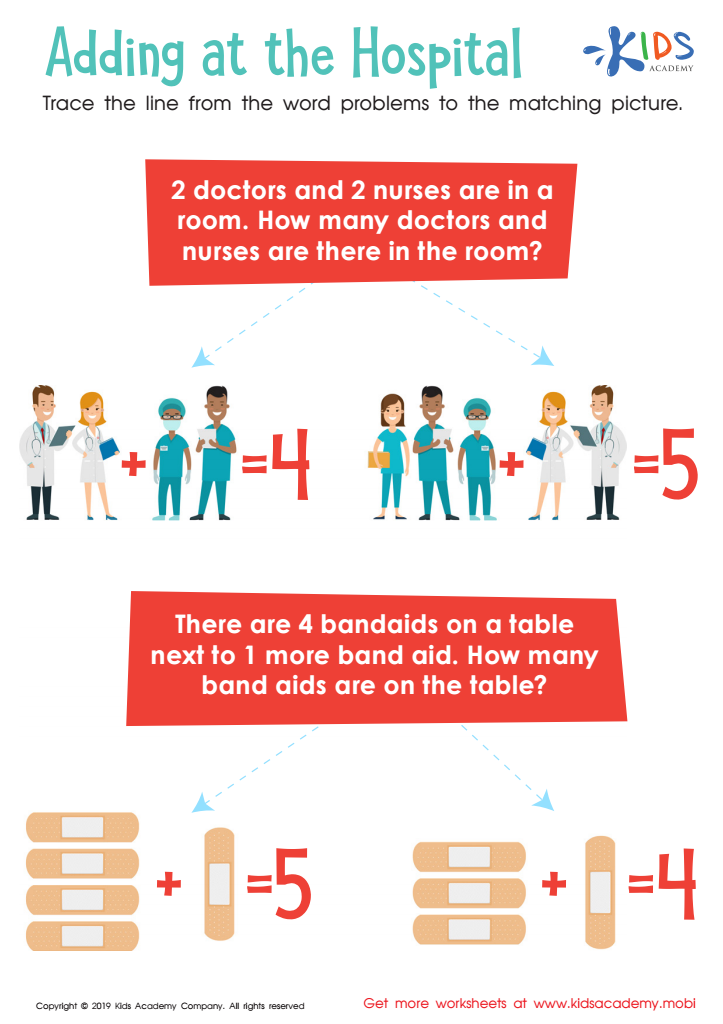

Adding at the Hospital Worksheet
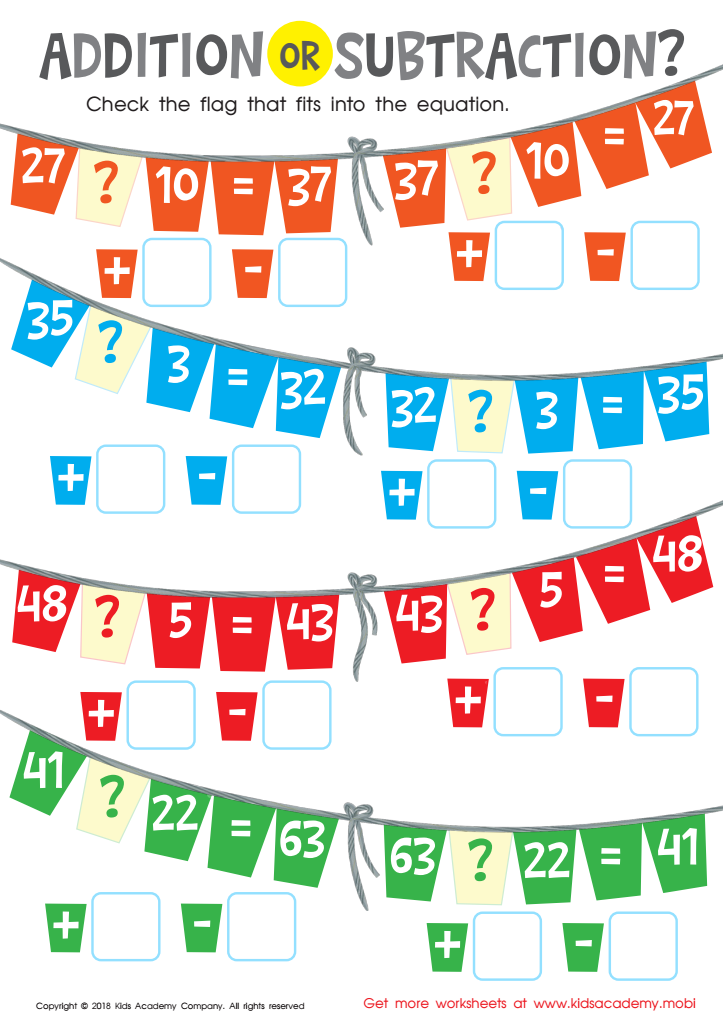

Addition or Subtraction? Worksheet
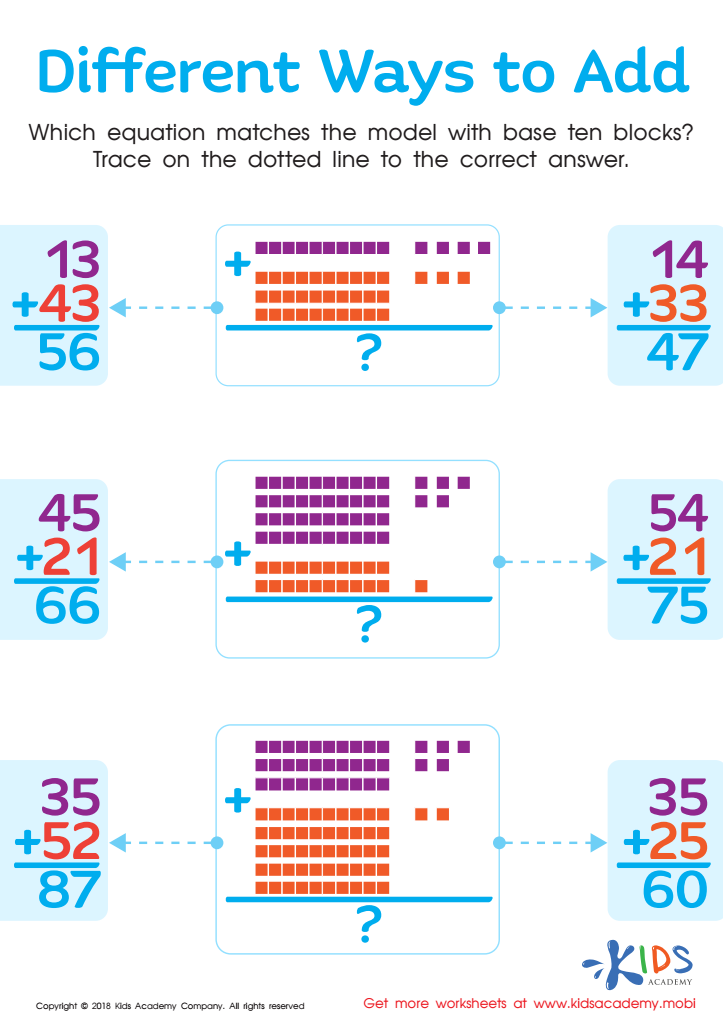

Different Ways to Add Worksheet
Problem-solving abilities in normal addition for children aged 4-9 are foundational skills that impact many aspects of their academic and personal development. At this early age, students are not only learning to add numbers but also developing critical cognitive skills such as reasoning, logical thinking, and memory. Encouraging these abilities sets the stage for future success in more complex mathematical concepts and other subjects.
When children practice addition, they improve their ability to focus and follow step-by-step procedures, which are essential skills for tackling more intricate problems in later years. Additionally, mastering early arithmetic can build confidence and foster a positive attitude towards learning, which is pivotal for maintaining enthusiasm in school.
Moreover, problem-solving in mathematics teaches children resilience and perseverance, as they often need to try multiple approaches before arriving at the correct answer. These soft skills are incredibly valuable in real-life situations beyond the classroom, helping them deal with everyday challenges and make informed decisions.
For both parents and teachers, actively supporting the development of addition problem-solving skills means investing in a child's overall education and life preparedness. This support can come through engaging activities, practical applications, and positive reinforcement, ensuring that children view problem-solving as a meaningful and enjoyable endeavor.
 Assign to My Students
Assign to My Students











